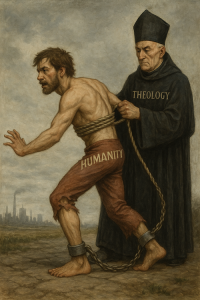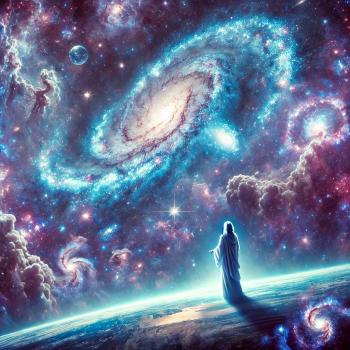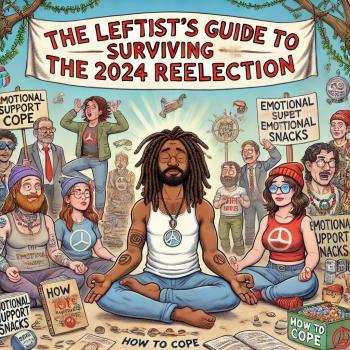
Hey everyone! Long time no post – but I hope to make it up in this article. Just for fun (at least for me) let’s talk about something that’s long overdue: the one scholastic discipline that hasn’t improved at all — theology.
But before we dive into all that, I need to share a win: I had my annual physical recently, and I weighed in 50.5 pounds lighter than I did last year. That alone is a celebration — and it’s not just about vanity. It’s about wellness, confidence, longevity, and discipline. My weight loss journey, fueled by intentionality and keto, is symbolic of something bigger: evolution.
Everything Evolves — Except Theology
From medicine to mechanics, physics to philosophy, linguistics to logistics — every scholastic pursuit known to humanity has pushed the envelope. Let’s be real: you can buy a Honda Civic today that will outrun a 1960s muscle car. A Tesla Model S Plaid or Lucid Air Sapphire will crush anything from that “golden era” of horsepower in sub-two seconds flat. Think about that. A four-door electric sedan outperforming Ferraris, Lamborghinis, and motorcycles. That’s progress.
Planes? They used to need four engines to cross an ocean. Now, a twin-engine Dreamliner can go transpacific with ease and fuel efficiency.
And yet, if you took a theologian from the first century, handed him a Bible in 2025, and said “Here’s what they’re still preaching,” you’d get a smile and a “Well done, good and faithful servant.” Because nothing has changed.
Theology is the only scholastic discipline that hasn’t evolved.
The Deconstruction Imperative
Some of you already know — I’m deeply immersed in deconstruction. My latest book, Deconstructing Religion 2, might be the last book on religious deconstruction anyone ever needs. Why? Because it dares to do what the industry refuses: finish the journey.
See, deconstruction isn’t a lifestyle. It’s not a brand. It’s a process — one that should lead you to a decision: either deepen your faith, now stripped of all its inherited garbage, or walk away and chart a new course. That could mean mysticism, stoicism, humanism, atheism — whatever resonates with your authentic self.
And let me be absolutely clear: if you’ve never flirted with atheism during your deconstruction journey, you haven’t gone deep enough.
I did. I was there. But now? I’m not a theist. Not an atheist. I’m an agnostic anti-theist. I don’t find theology useful. It’s a relic. A museum piece that people still try to use like it’s cutting-edge tech.
Why Theology Is a Dead Discipline
Let’s do a thought experiment.
Take a chemist from the first century, drop them in 2025, and give them just the books — no labs, no experiments. Just reading. They’d think we’d unlocked alchemy.
Do the same with a biologist — they’d think we cracked the genetic code of God.
Engineer? They’d think we’d become sorcerers.
Physicist? Even Sir Isaac Newton himself would think quantum mechanics was magic.
But theologians? Give them our seminary textbooks, and they’d say, “Yup. Same as it ever was.” Theology hasn’t evolved. It’s fossilized.
Push the Envelope — or Stay in the Stone Age
Every time someone tried to push theology into new territory, they got branded a heretic. Marcion. Origen. Even modern voices like Carlton Pearson or Miles Monroe. Visionaries turned villains because they dared to innovate in a system that rewards intellectual stagnation.
Meanwhile, science thrives on falsifiability — the idea that every claim must be testable, repeatable, or subject to challenge. Theology? It shuts the door on that entirely. Ask a pastor a hard question and you’ll get a soft answer: “Just fortify your faith.”
You know what that is? Pimp game. It’s control. Break the subject down mentally, make them doubt their own worth, then offer salvation — for a price. Theology is the velvet glove on the iron fist of control.
The Gnostic Agnostic Is Coming
That’s why we’re retiring Freeology Friday. After five years, it’s time to evolve. Aaron and I are launching a new show: The Gnostic Agnostic. Because we’re tired of playing nice with belief systems that haven’t given the world anything but war, shame, trauma, and fear.
Theology has given us:
- Justification for slavery
- Hatred of women
- Demonization of sexuality
- Repression of thought
- Sanctification of war
- Persecution of the “other”
What hasn’t it given us? Progress. Healing. Innovation. Technology. Better human outcomes.
Quantum Consciousness and the Kingdom Within
What has been pushing the envelope? Physics. Particularly quantum mechanics. Quantum entanglement is a better metaphor for the divine than anything theology’s ever produced. Why do you feel a loved one after they die? Why does their energy linger?
Because energy doesn’t disappear — it transfers. And if we’ve shared energy, it remains entangled. That’s not superstition. That’s science.
That’s also what the Gnostics were trying to say long before particle physics existed. The kingdom of consciousness is within and between us. Like the mycelial networks under the forest floor — nature’s internet — we’re all connected. And that’s what organized religion can’t tolerate: unfiltered, decentralized enlightenment.
Congregationalism Is Control
Congregationalism isn’t about community. It’s about control. Herd enough people into the same room, chant the same dogma, and you can manufacture consent. You can enforce orthodoxy. You can dominate culture and politics.
But you can’t liberate minds.
Gnosticism doesn’t lend itself to congregationalism. That’s why it got snuffed out. It was too empowering. It said: “Don’t look up — look within.”
And that’s the most dangerous idea of all.
What Has Theology Actually Contributed?
Let’s ask the question plainly: what has theology contributed to humanity?
Not philosophy — which evolves and explores.
Not spirituality — which is a personal, evolving relationship with the self and the cosmos.
Theology is the organized, systematic intellectualization of make-believe. It’s the study of invented rules, made sacred by repetition and ritual. And if your beliefs can’t be tested, challenged, or falsified — then what you have is not truth. It’s just noise.
Meanwhile, science gave us penicillin, polio vaccines, cochlear implants, and AI. Engineering gave us bullet trains, quantum computing, and energy-efficient cars. Philosophy gave us frameworks for ethics, justice, and governance.
And theology? It gave us hell. Literally. A concept that didn’t even exist until Dante wrote Inferno, and the church realized fear was a better motivator than love.
Theology Doesn’t Heal. It Hurts.
Ask a theologian to define how their work improves humanity. They won’t give you data — they’ll give you dogma. They’ll cite unprovable claims, unmeasurable results, unverifiable experiences. And call it truth.
Let’s be clear: I’m not here to tell you not to believe. Believe what you want. Jesus. Krishna. Buddha. Odin. Universe. Vibes.
But don’t tell me your theology is helping humanity if it can’t show its work. If it can’t pass peer review. If it shuts down dissent instead of inviting it. If it hurts more than it heals.
Final Thought: The Clock Is Ticking
Here’s the truth: time kills all gods. Every deity that ruled a generation eventually bowed to new understanding, better explanations, and broader awareness. Theology is undefeated — at losing.
That’s why I’m asking one simple thing: keep pushing the envelope. In thought. In belief. In self-awareness. Read more. Ask better questions. Have uncomfortable conversations.
Because if theology isn’t evolving, we damn well better be.
Thanks for growing in real time with me. What do you think? Let me know in the comments!
Derrick Day is the author of Deconstructing Religion, Deconstructing Religion 2, The Martial Leader, MetaSpeech, and the host of The Forward Podcast.
Follow him on Facebook, Instagram, TikTok, and YouTube














